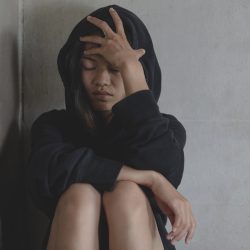20+ Years Experience
Specialist Private Drug Rehab

Benzodiazepines have long been prescribed to treat anxiety disorders, panic disorders, and insomnia, providing much-needed relief for countless individuals battling these conditions.
However, the dark side of these medications lies in their potential for addiction, turning a once-helpful treatment into a debilitating dependence.
Are you or someone you know at risk? This comprehensive guide will delve into the world of benzodiazepine addiction, exploring the symptoms, causes, and treatment options available to help individuals regain control of their lives.
In the following sections, we will examine the nature of benzodiazepines, discuss how to recognise addiction and explore the short-term and long-term adverse effects of misuse.
We will also discuss treatment options, including therapy, medication, and support groups, and consider how responsible prescribing practices and alternative treatments can help prevent addiction.
Prescribed benzodiazepines are prescription medications designed to address anxiety, panic disorders, and insomnia.
These drugs act on the central nervous system, producing calming effects that alleviate distressing symptoms.
However, prolonged consumption of benzodiazepines can lead to dependency, cognitive impairment, and an increased likelihood of falls.
In fact, benzodiazepines have been linked to drug abuse, driving impairment, and even mortality due to overdose and other withdrawal effects.
Given these potential risks, understanding the nature of benzodiazepines and their effects on the body becomes of paramount importance.
Exploring alternative treatments like antidepressants, anticonvulsants, and buspirone could potentially help patients steer clear of the hazards tied to benzodiazepine abuse.
Anxiety and panic disorders are serious mental disorders and health conditions characterized by feelings of fear, panic disorder worry, and unease.
These disorders often manifest physical symptoms, such as increased heart rate, perspiration, and difficulty breathing.
Benzodiazepines are frequently prescribed to treat these disorders due to their calming effects on the central nervous system.
However, long-term use of benzodiazepines can lead to increased dosage and worsening of the pre-existing condition, potentially resulting in substance abuse.
Non-pharmacological therapies, particularly psychological and behavioural therapies, are considered more effective for treating anxiety and insomnia in primary care settings.
Patients can diminish their dependence on benzodiazepines and lessen the addiction risk by considering these alternative treatments.
In addition to anxiety and panic disorders, many prescribe benzodiazepines that are also prescribed to treat insomnia and other sleep-related issues.
These medications work by enhancing the activity of the neurotransmitter GABA, which helps reduce anxiety and promote relaxation.
Unfortunately, chronic abuse of benzodiazepines can lead to severe dependence on other dangerous drugs too.
Prolonged use of benzodiazepines for insomnia treatment can result in an increase in dosage and exacerbation of serious symptoms of the existing condition, potentially leading to drug and alcohol abuse.
However, nonbenzodiazepine pharmacotherapies and non-pharmacological therapies, such as sleep hygiene techniques, can be effective alternatives for managing insomnia.
It’s vital to address the issue and seek appropriate help by identifying a benzodiazepine dependence or addiction.
Benzodiazepine dependence or abuse occurs when a person takes a higher quantity of the medication than prescribed or uses another person’s prescription.
The condition is referred to as Hypnotic, Sedative, or Anxiolytic Use Disorder in the mental health community. To identify an addiction, it’s essential to observe both the physical and mental health, symptoms and behavioural indicators.
Physical symptoms of benzodiazepine drug addiction include physical dependence, withdrawal symptoms, and an intense compulsion to persist in usage.
Behavioural indicators, on the other hand, may include alterations in behaviour, obtaining the drug from non-professional sources, and the risks associated with purchasing on the street.
Recognizing these signs allows individuals to embark on the journey towards recovery.
Physical manifestations of benzodiazepine addiction encompass dependence, and an intense compulsion to persist in usage. Dependence can lead to difficulty sleeping, irritability, and an overwhelming need for continued substance use disorder itself.
Withdrawal symptoms, on the other hand, can include sleep disturbances, irritability, and difficulty concentrating.
Being aware of these physical symptoms is imperative as they can act as red flags indicating a possible struggle with benzodiazepine addiction.
Timely detection and intervention can significantly enhance the prospects of a successful recovery.
In addition to physical symptoms, behavioural indicators play a crucial role in identifying benzodiazepine addiction.
Atypical drug-related behaviours, such as doctor shopping or obtaining the drug from non-professional sources, can be warning signs of addiction.
The dangers associated with procuring benzodiazepines on the street include a considerable risk of acute addiction and physical dependence.
Recognising these behavioural indicators and reaching out for professional help enables individuals to confront their own benzodiazepine dependence and addiction and start their recovery journey.
The potential causes of a benzodiazepine overdose and addiction may include self-medication of underlying issues and polydrug abuse involving other substances.
Understanding these causes can help individuals and healthcare professionals develop targeted strategies for preventing and treating benzodiazepine addiction.
Self-medication involves using benzodiazepines to address underlying issues such as anxiety or insomnia without consulting a medical professional.
Polydrug or drug abuse, on the other hand, is the utilisation of multiple drugs in combination, including benzodiazepines, which can lead to addiction as dependence on the combination of drugs may arise.
Self-medication with benzodiazepines for anxiety or insomnia can lead to addiction, as individuals may develop tolerance and dependence over time.
This is particularly concerning, as self-medication can result in the development of Hypnotic, Sedative, or Anxiolytic Use Disorder.
The use of benzodiazepines without medical supervision may result in the development of tolerance and dependence, which can in turn lead to severe benzodiazepine dependence and addiction.
Preventing self-medication and the subsequent risk of addiction necessitates individuals to seek medical advice before taking any medication, including benzodiazepines.
Seeking professional help for underlying issues, such as an anxiety disorder or insomnia, can lead to more effective and less risky treatment options.
Polydrug abuse is another significant cause of benzodiazepine addiction.
The concurrent or combined use of multiple drugs, including benzodiazepines and other drugs, can result in addiction as dependence on the drug uses the combination of drugs may arise.
Averting polydrug abuse and the associated risks requires individuals to be aware of the potential repercussions of combining drugs.
Additionally, seeking professional assistance if struggling with polydrug or other serious drug abuse or drug alcohol abuse or alcohol abuse can be a vital step towards recovery.
The short-term effects of benzodiazepine abuse include:
These effects can significantly impact an individual’s daily life and overall well-being.
Long-term consequences of chronic benzodiazepine use and substance abuse itself, on the other hand, can involve cognitive difficulties, memory impairment, and an increased likelihood of dementia.
Understanding these short-term and long-term toxic effects is crucial for individuals struggling with benzodiazepine addiction, as well as for healthcare professionals working to treat and prevent addiction.
Recognizing the potential consequences of benzodiazepine abuse enables individuals to make educated decisions about their treatment and start their journey towards recovery.
Short-term effects of benzodiazepine abuse can cause psychomotor retardation, memory impairment, and paradoxical disinhibition.
Symptoms associated with psychomotor retardation include drowsiness, poor concentration, ataxia, dysarthria, motor incoordination, diplopia, muscle weakness, vertigo, and mental confusion.
Memory impairment resulting from benzodiazepine abuse can lead to difficulty in recollecting recent events and forming new memories.
Paradoxical disinhibition, on the other hand, is a phenomenon wherein the therapeutic doses, of benzodiazepines, can result in an augmentation of aggressive or impulsive behaviour.
Long-term benzodiazepine use can lead to several consequences, including:
Elderly patients may be at an increased risk of:
due to long-term benzodiazepine use. Recognising these long-term consequences is crucial in making informed decisions about benzodiazepine treatment and exploring alternative options if necessary.
Benzodiazepine withdrawal and detoxification involve managing withdrawal symptoms and gradually reducing the dose to minimise risks and discomfort.
Withdrawal symptoms from benzodiazepines can include anxiety, autonomic instability, insomnia, and sensory hypersensitivity, which are all part of benzodiazepine withdrawal syndrome.
Following a gradual dose reduction plan, often under medical supervision, is vital to ensure a safe and effective withdrawal process.
Here are the recommended steps for benzodiazepine withdrawal:
Withdrawal symptoms associated with benzodiazepines include:
These are common indications of chronic, benzodiazepine dependence in users and alcohol withdrawal.
Being aware of these symptoms can help individuals and healthcare professionals monitor the process and adjust the withdrawal plan as necessary.
Early detection and intervention can significantly improve the chances of successful recovery.
Gradual dose reduction is the process of gradually decreasing the dosage of a medication under medical supervision to safely taper off medications, such as benzodiazepines, and abate withdrawal symptoms.
The aim of gradual dose reduction is to aid individuals in gradually adjusting to lower doses of medication until they can eventually discontinue its use.
For benzodiazepine withdrawal, it is suggested that gradual dose reduction should occur over a minimum of 10 weeks.
This approach can minimise the risk of seizures and other complications associated with benzodiazepine discontinuation and increase the likelihood of achieving long-term abstinence.
Various treatment options are available for individuals struggling with benzodiazepine addiction, including therapy, medication, and support groups. These options can help individuals overcome their addiction and maintain sobriety.
Interventions, such as substitution, psychotherapies, and pharmacotherapies, can also aid in the treatment of benzodiazepine dependence.
Exploring different treatment options and closely collaborating with healthcare professionals allows individuals to develop a personalized plan to treat benzodiazepine dependence and attain lasting recovery.
Therapy, such as cognitive-behavioral therapy (CBT), can help individuals address the underlying issues that led to benzodiazepine addiction and develop healthier coping strategies.
CBT can aid individuals in recognising and addressing the root causes that led to benzodiazepine addiction, such as anxiety, depression, or trauma.
It can also help individuals form healthier coping strategies to manage their emotions and behaviours.
Engaging in therapy and collaborating with a mental health professional helps individuals gain deep insights into their addiction and develop essential skills for maintaining sobriety.
Medication can play a crucial role in the treatment of benzodiazepine addiction, particularly for individuals who require an alternative to benzodiazepines for anxiety and insomnia treatment.
Medications such as antidepressants and anticonvulsants can be effective alternatives for managing these conditions without the risk of benzodiazepine addiction.
Working closely with a healthcare professional, individuals can explore different commonly prescribed medications and find the most suitable treatment for their specific needs.
Support groups, like Narcotics Anonymous, can provide a safe and supportive environment for individuals recovering from benzodiazepine addiction. These groups offer:
Participating in support groups can be a valuable part of the recovery process.
Examples of support groups available include Narcotics Anonymous, SMART Recovery, and the BenzoBuddies Community Forum. Engaging in support groups can be a valuable resource for individuals on their path to recovery.
Preventing benzodiazepine addiction involves responsible prescribing practices and exploring alternative treatments for anxiety and insomnia.
Healthcare professionals can help mitigate the risk of benzodiazepine addiction among their patients by adhering to responsible prescribing guidelines and considering non-pharmacological therapies for insomnia and anxiety.
Patients, too, can play a role in prevention by being aware of the risks associated with benzodiazepine use and seeking professional help for underlying issues such as anxiety or insomnia.
Responsible prescribing practices involve:
It is recommended that prescription drugs be limited to a duration of 1-2 weeks in order to minimise the potential for dependence.
By adhering to responsible prescribing practices, healthcare professionals can minimise the risk of benzodiazepine addiction while still providing effective treatment for anxiety and insomnia.
Alternative treatments for anxiety and insomnia can help reduce the risk of benzodiazepine addiction. Non-pharmacological therapies for insomnia and anxiety, such as psychological and behavioural therapies, can be effective alternatives to prescribing benzodiazepines alone.
Exploring these alternative treatments, including selective serotonin reuptake inhibitors, allows individuals to manage their anxiety and insomnia without depending on benzodiazepines, ultimately lowering the risk of addiction.
Alprazolam (Xanax) is the most likely benzodiazepine to cause dependence, due to its higher potency and shorter half-life.
Taking benzodiazepines regularly for more than a few weeks may lead to addiction, cognitive decline, motor vehicle crashes, and hip fractures.
Furthermore, long-term use of benzodiazepines has been associated with disinhibition, impaired concentration and memory, depression, and sexual dysfunction.
Therefore, it is important to only take benzodiazepines for the shortest amount of time possible and with a doctor’s prescription.
Withdrawal from benzodiazepines can be difficult and should be done with a doctor’s help.
Tapering off slowly is the safest way to discontinue their use, and your doctor can provide specific advice on how to do this. Speaking to others about experiencing withdrawal symptoms can also be helpful.
Common side effects of benzodiazepines include drowsiness, confusion, light-headedness, unsteadiness, dizziness, slurred speech, muscle weakness, and memory problems.
Regular substance use disorder substance abuse, or use disorder may also cause impaired thinking or memory loss, as well as anxiety, depression, irritation, paranoia, and aggression.
Benzodiazepines are primarily used for treating anxiety, panic disorders, and insomnia, offering relief from symptoms associated with these conditions.
These medications are generally safe and effective when taken as prescribed, but they can be habit-forming and should be used with caution.
They can also cause side effects such as drowsiness, confusion, and impaired coordination.
Benzodiazepine addiction is a complex issue that affects countless individuals worldwide.
By understanding the nature of benzodiazepines, recognising the signs and symptoms of addiction, and exploring various treatment options, individuals can take control of their lives and overcome this debilitating dependence.
Prevention plays a crucial role in mitigating the risks associated with benzodiazepine use, and responsible prescribing practices and alternative treatments are essential components of a comprehensive approach.
Remember, recovery is possible. Reach out to a healthcare professional or support group if you or someone you know is struggling with benzodiazepine addiction.
With the right resources and support, a brighter, addiction-free future is within reach.
There are a range of other services that we can provide. Have a look at the list below for more information:























We Aim To Reply To All Enquiries With-in 24-Hours